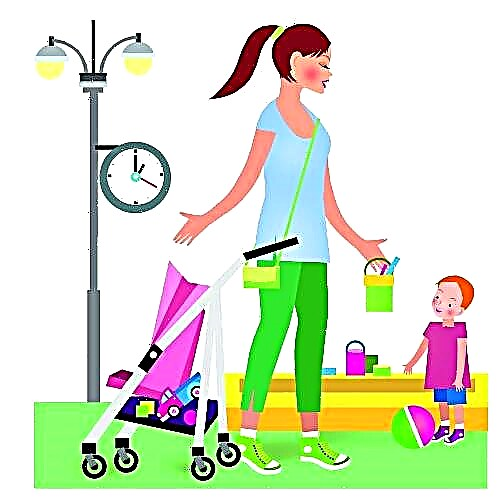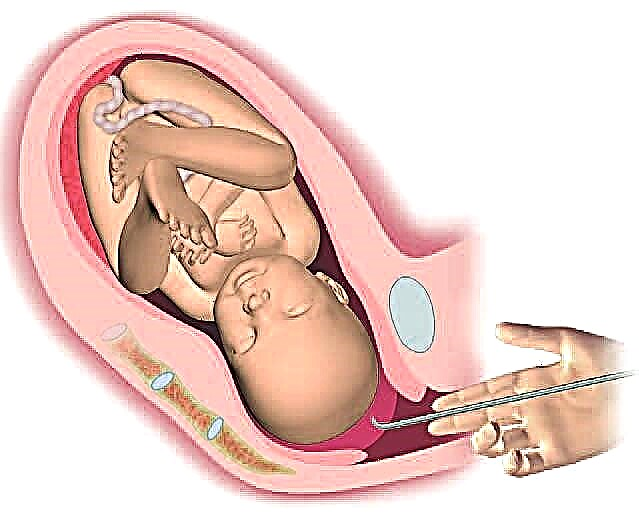
In our time, when technological progress often replaces human communication in real life, the problem of isolation in children is becoming more acute. The kids see that a short telephone conversation is enough for their parents, and in the evenings all family members go to their corners and sit in front of the TV, with a tablet in their hands or at a computer. What conclusion should the child draw? It is true, subconsciously, the baby is convinced that communication is not such a necessary thing for life.
The inability and fear to establish contacts can then have a bad effect on his adult life, and the little man will need to get a profession, fall in love, create a family, be friends in the end ...

In addition, a withdrawn, shy child reacts very painfully to non-standard life situations. And, as we all know, there will be many more. Undefeated childhood withdrawal often causes a serious inferiority complex.
The task of parents is to help a closed kid fall in love with the world around him. But what exactly needs to be done?
What it is?
Closure is not a disease. This is a protective mechanism by which the child tries to secure his inner world from the dangers that come from the outer world.
Closure is very rarely inherited, usually an acquired character trait. The kid becomes closed under the influence of external factors - methods of upbringing, family environment, conflicts at school or in kindergarten.
Some neonatologists are inclined to believe that the reason for withdrawal is a consequence of premature pregnancy. Babies born prematurely, as you know, are isolated in separate resuscitation boxes, and the crumbs spend the first days of their life without a mother. They are devoid of communication.
Psychologists more often argue that isolation is formed at the age of 1 year.
Be that as it may, the recommendations of the specialists are the same - children closed from the world need our help.

First of all, parents need to learn to distinguish between reticence and shyness. They are often confused. Both overly shy guys and introverted ones react almost the same to many factors:
- They are wary of strangers and unfamiliar people.
- Any drastic changes in the usual way of life are painfully perceived.
- They are restless, subject to frequent mood swings.
So what's the difference between them? A shy child, in spite of everything, strives for communication, and is very worried when it does not work out. An introverted kid does not communicate, because he does not know how it is, why and for what. He practically does not feel the need for communication at all. A shy child needs to be taught how to organize communication, and a closed one should be motivated to communicate. Until he himself wants to make contact with the world around him, even an army of psychologists cannot do it for him.

So how do you recognize an introverted child?
Symptoms
- The child speaks little or does not speak at all. If he deigns to address someone verbally, he does it in a low voice or even in a whisper.
- The kid does not adapt well to the new team (it can be a kindergarten, a section, a playground near the house, where other people's children play every day). In such places, your child tries to stay away and be a dumb observer.
- The child practically does not express a personal opinion. Prefers to agree with the opinion of the majority or abstains from assessments altogether.
- The child has no friends or there are very few of them, and communication with them is extremely rare.
- The kid has a strange hobby. Or he insistently asks to get him not a kitten or a puppy, as other children do, but some exotic creature - a snake, a chameleon, an iguana, insects.
- The child has learning difficulties, especially in those areas of knowledge where it is required to apply communication skills - oral subjects, creative circles.
- The child is extremely whiny. He reacts to any incomprehensible situation with burning tears.


Closure also has manifestations at the physical level. Such children are characterized by shallow and frequent breathing, and little gesture. Closed guys often have their hands behind their backs or in their pockets. Often, withdrawn children have a stomach ache, and there are no serious medical reasons for the pain. And the called doctor usually makes a helpless gesture: "On the nerves!"
So why do children become withdrawn?
Causes
- Disease. Some diseases affect the psychological state of the child. Children who are often ill are also at risk. They can become withdrawn because they spend a lot of time at home and do not attend school or kindergarten.
- Temperament. If your child is phlegmatic, a certain amount of isolation is his innate trait. Here, correction will not achieve anything.
- Lack of communication and attention. If the child is the only one in the family or the parents devote too little time to the baby.
- The strictness of the parents. Excessive requirements suppress the initiative of the crumbs, he may begin to feel unnecessary, not accepted, and as a result, the baby becomes isolated.
- Severe psychological trauma. The child can go into voluntary psychological isolation from the outside world after severe stress. For example, he lost one of his family members, parents divorced, loved ones get sick or often scandal loudly right in front of the child.
- Constant dissatisfaction of parents with the actions and words of the crumbs. Now he eats too slowly, then he dresses for a long time, then he makes a loud noise. Constantly twitching makes the child nervous, unsure of his actions. As a result, it can close.
- Private physical punishment, especially if it is disproportionate to the offense and is characterized by harshness and cruelty.

It is always more difficult to determine the true reason for a child's isolation, for someone who is often near the baby. As you know, big things are seen at a distance, so it makes sense for parents to seek help from a psychologist. The specialist will characterize the degree of closeness of the toddler and help establish contact between the child and others, suggest ways to correct behavior.
What should parents do?
Act. And immediately.
- Expand your kid's social circle. Take him to kindergarten, playground, park, zoo. There, where there are always many other children. Naturally, he will not immediately begin to communicate with them, let him stand aside for a while. Gradually, if everything happens without pressure, he will begin to take part in common games and talk with new friends.
- Provide tactile contact with your child. When talking to strangers or being in new places unfamiliar to your child, always hold his hand. Introverted children desperately need a sense of security. Hug your baby more often at home. Learn to give a gentle, relaxing massage and give your child before bed.
- Teach your child to express feelings in words. If he sat alone by the window again, do not ignore it. Be sure to ask the little one leading questions: "Are you sad?", "Are you sad because it is raining outside?", "And when it ends, will you be more fun?" Encourage your child to “replace” negative emotions. When he is sad about rainy weather, invite him to draw or watch cartoons. Be sure to discuss with him what you will do.
- Create situations when communication is necessary. For example, ask him to take a pack of sweets from the store and ask the cashier for its cost. He wants these sweets, but you pretend not to know how much to pay for them. I am sure the kid will overpower himself and be able to ask a question to a stranger. If not, then the child is not ready yet. Don't rush him. Create a similar situation in a week.
- Read fairy tales to your child, in which there are many dialogues between the characters.
- In corrective games, give preference to those that require communication.
- More often ask the child's opinion on certain family issues: What to cook for dinner? Where to go on the weekend?
- Invite guests to the house. It is better if they are your friends with children.
How to behave if your child is withdrawn, you can find out by watching the following video.
Play therapy
Correction of behavior by games is an effective and very simple method and does not require specific knowledge and skills. It is possible to treat a child with the help of a game both within the family and in the children's team. Games for closed preschool children (5-6 years old) are especially effective. They are quick to correct communication problems.

"Creating a fairy tale"
Participants must be divided into pairs. Each "deuce" should mold a non-existent fantastic animal from plasticine. In the middle of the process, the game stops and the pairs of participants change places. Now their task is to finish off the creature that other players have in mind. At the end of the creative competition, the guys tell who they came up with, what kind of character it is, what he knows, what he eats, where he lives.

"What will I do?"
Invite your introverted child to act out an unfamiliar situation. For example, a flying saucer has landed in your yard. Nice and very friendly aliens came out of it. They are holding a big cake in their hands ... Together with the child, by roles, come up with your dialogues with these aliens. This will teach your toddler not to be shy about talking to strangers.

"I am in many years"
This game is used by psychologists both to determine the causes of isolation and to eliminate them. In addition, it will be useful for communicative children as a means of preventing psychological disorders.
Ask the child to draw himself, but after many years. Take a close look at the picture - you can understand a lot from the drawing of a closed kid:
- If he portrays his figure very small and at the same time is not the youngest in the family, this indicates a lack of attention and low self-esteem.
- If the figure is large and takes up almost the entire sheet, the child is probably spoiled.
- If he drew himself and his family, but himself a little far from others, the baby experiences loneliness.
- If the figures are small, and the child's pressure on the pencil is strong, this may be a sign of an increased level of anxiety. The baby does not feel safe, he is afraid to be open.

Psychologist's advice
- Parents should not despair and believe that there is no way out. Closed and uncommunicative children are not a sentence. This is the starting point for action.
- Mom and Dad should show by personal example every day that communication - it's interesting, informative, exciting and useful - helps to solve some problems. They should demonstrate all this to an introverted child and tell them what positive feelings communication gives them. Go on a visit, invite guests to your place.
- You can't rush the "beech". He himself will choose the best moment to start communicating with someone. Pulling it and pushing it is the wrong way. This can cause even more withdrawal. The kid will build a real iron curtain, which will be very difficult to lift.
- Goodwill is the basis for successful correction. If the baby feels it, he will not have problems with overcoming difficulties in communication.

In the following video, you can learn what to do if the child is uncommunicative and how to help him.



